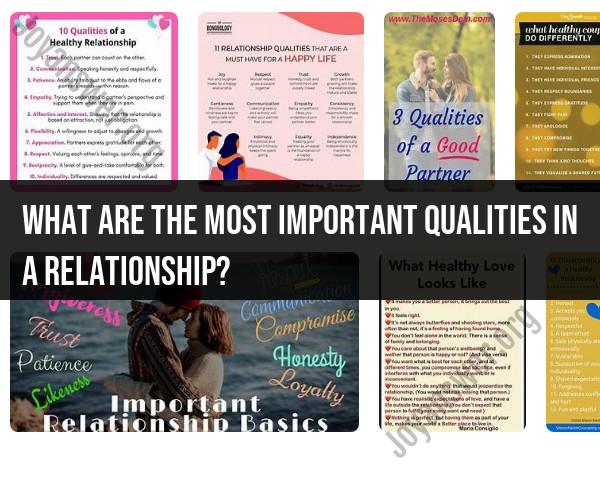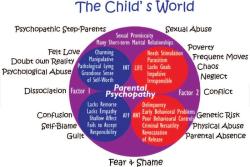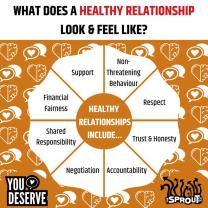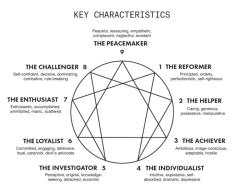What are the most important qualities in a relationship?
Successful relationships are built on a foundation of trust, communication, and mutual respect. Here are some of the most important qualities that contribute to a healthy and fulfilling relationship:
Communication: Effective communication is essential for understanding each other's needs, feelings, and expectations. It involves both talking and active listening. Open and honest conversations help resolve conflicts and build intimacy.
Trust: Trust is the cornerstone of any strong relationship. It's the belief that your partner is reliable, honest, and will act in your best interest. Trust is built over time through consistency and transparency.
Respect: Respect for your partner's individuality, boundaries, and opinions is vital. Treating each other with kindness and consideration fosters a positive atmosphere and a sense of equality in the relationship.
Empathy: Empathy is the ability to understand and share the feelings of your partner. It helps you connect on a deeper emotional level, demonstrating that you care and are supportive during challenging times.
Support: A successful relationship involves supporting each other's goals and aspirations. Encouraging your partner to pursue their passions and providing a safety net when they stumble builds a strong foundation.
Quality Time: Spending quality time together is essential for building a connection. It can be as simple as enjoying a meal, going for a walk, or sharing hobbies. These moments strengthen the bond between partners.
Equality: In a healthy relationship, both partners are equal. Decisions are made jointly, and power dynamics are balanced. No one should feel dominated or controlled.
Appreciation and Gratitude: Expressing appreciation for the things your partner does and showing gratitude for each other's presence in your life fosters positivity and love.
Conflict Resolution: Disagreements are a natural part of any relationship. The ability to resolve conflicts in a constructive and respectful manner is crucial. Avoiding blame and instead focusing on finding solutions is key.
Shared Values and Goals: While differences can be enriching, it's important to share core values and long-term goals to ensure a sense of alignment and unity in the relationship.
Intimacy and Affection: Physical and emotional intimacy is important for a romantic relationship. It involves expressing affection, connecting on a deeper level, and maintaining a healthy sexual connection.
Flexibility and Compromise: Flexibility and the willingness to compromise when necessary help resolve differences and keep the relationship balanced. It's important to find middle ground when conflicts arise.
Independence: While spending time together is important, it's equally essential to maintain a sense of individuality. Encourage each other's independence and personal growth.
Laughter and Fun: Having fun together and sharing laughter strengthens the bond. A sense of humor can help alleviate stress and create lasting memories.
Forgiveness: Mistakes are part of any relationship. Learning to forgive, move forward, and not hold onto grudges is crucial for maintaining a healthy, long-lasting connection.
Patience: Be patient with each other's imperfections and growth processes. It takes time to build a strong and successful relationship.
Loyalty: Loyalty involves staying committed to the relationship, even when faced with challenges. It means having each other's backs and standing together in times of adversity.
Remember that no relationship is perfect, and it's normal to encounter difficulties and work through them. However, having these qualities as a foundation can significantly improve your chances of building a successful and satisfying partnership.
What are the most crucial qualities and attributes in a successful relationship?
The most crucial qualities and attributes in a successful relationship are:
- Communication: Good communication is essential for any successful relationship. It allows partners to share their thoughts, feelings, and needs with each other. It also allows them to resolve conflict and build understanding.
- Trust: Trust is another essential quality for a successful relationship. It allows partners to feel safe and secure with each other. It also allows them to be vulnerable and open with each other.
- Mutual respect: Mutual respect is the foundation of any healthy relationship. It means that partners value each other's opinions, feelings, and needs. It also means that they treat each other with kindness and consideration.
- Shared values: Shared values are important for a successful relationship because they provide a foundation for partners to build their relationship on. When partners share the same values, they are more likely to agree on important life decisions and to be supportive of each other's goals and dreams.
- Compatibility: Compatibility is also important for a successful relationship. It means that partners enjoy each other's company, have similar interests, and are able to resolve conflict in a healthy way.
How do key qualities like communication, trust, and mutual respect contribute to healthy relationships?
Key qualities like communication, trust, and mutual respect contribute to healthy relationships in the following ways:
- Communication: Good communication helps partners to understand each other better. It also helps them to resolve conflict and build trust. When partners communicate effectively, they are more likely to feel happy and satisfied with their relationship.
- Trust: Trust is essential for a healthy relationship because it allows partners to feel safe and secure. When partners trust each other, they are more likely to be open and vulnerable with each other. They are also more likely to be supportive of each other and to work together to achieve their goals.
- Mutual respect: Mutual respect is important for a healthy relationship because it allows partners to feel valued and appreciated. When partners respect each other, they are more likely to treat each other with kindness and consideration. They are also more likely to be willing to compromise and to work together to resolve conflict.
What characteristics and behaviors are foundational for a lasting and fulfilling relationship?
Some characteristics and behaviors that are foundational for a lasting and fulfilling relationship include:
- Honesty: Honesty is essential for a trusting and healthy relationship. When partners are honest with each other, they can build a foundation of trust and respect.
- Empathy: Empathy is the ability to understand and share the feelings of another person. It is important for partners to be able to empathize with each other in order to build a supportive and loving relationship.
- Kindness: Kindness is another important quality for a lasting and fulfilling relationship. When partners are kind to each other, they create a positive and supportive environment.
- Commitment: Commitment is essential for a long-term relationship. It means that partners are willing to work through difficult times and to support each other through thick and thin.
- Forgiveness: Forgiveness is important for any relationship because it allows partners to move on from past hurts and build a stronger relationship.
Ultimately, a successful and fulfilling relationship is one that is built on trust, respect, communication, shared values, and compatibility. When partners have these qualities, they are more likely to be happy and satisfied with their relationship.











